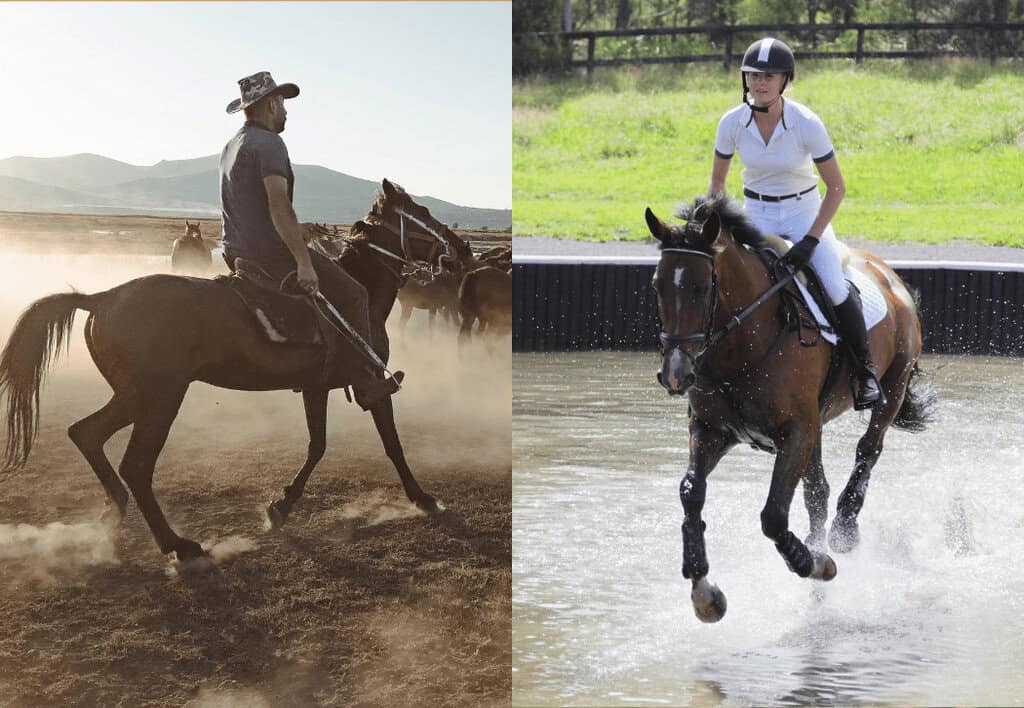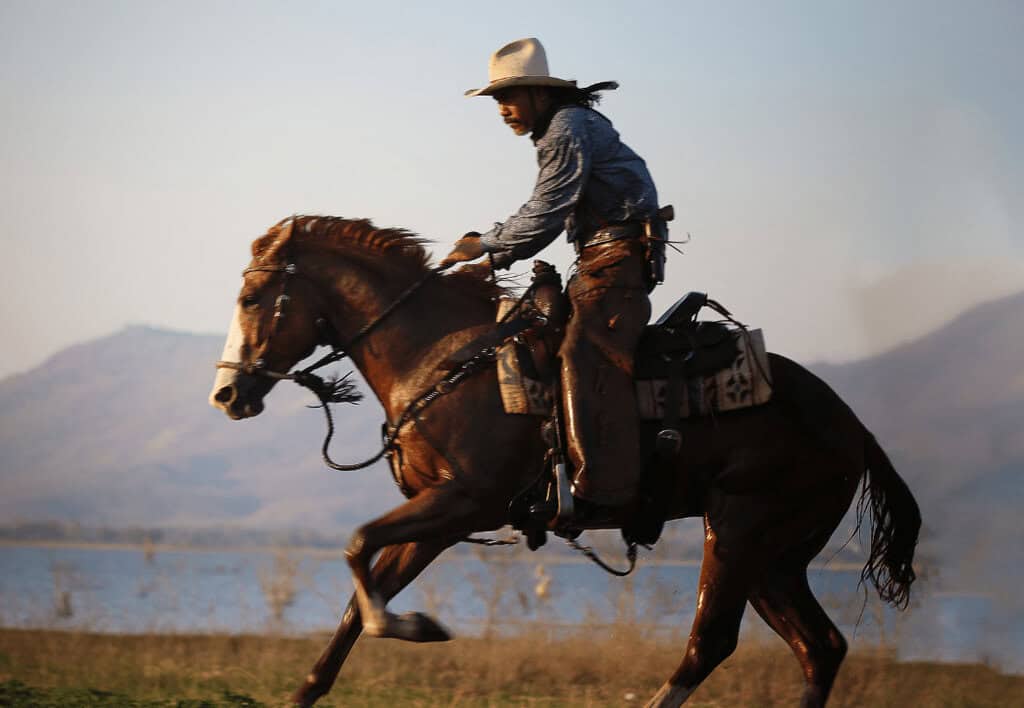
English vs. Western Riding: Which Is Better for Beginners?
What Beginners Need Most in the Saddle
When starting out, three key things matter most for beginner horseback riders:
- Comfort and Security: Feeling safe in the saddle is vital. This sense of security comes with practice, but a well-suited saddle can help ease fears of falling.
- Learning All the Aids: Riders must go beyond using the reins. Understanding how seat and leg cues influence the horse is critical to building a well-rounded foundation.
- Developing Balance: Balance is one of the hardest things for beginners to master. Rarely does anyone hop on a horse for the first time and look balanced. It often takes close to a year before a rider begins to appear naturally steady.
Why Western Riding Works for Beginners
Western riding offers beginners a sense of security right from the start. This is due in large part to the design of the saddle:
- Secure Saddle Design: A Western saddle has a high pommel, high cantle, and a wider seat. These features make riders feel boxed in and more stable.
- The Saddle Horn: Many beginners find comfort in holding the horn, whether for balance or peace of mind.
- Less “Wiggly”: Compared to an English saddle, the Western saddle minimizes the feeling of instability, which reassures those worried about falling.
Beyond saddle design, Western riding often teaches the importance of using all your aids. Riders learn to sit deep, use their seat and legs effectively, and rely less heavily on the reins. Disciplines like reining and cutting highlight how much a rider’s body position and leg cues influence the horse’s movements.
Another advantage of Western riding is its versatility. Western horses are often well-rounded, used not only in arenas but also on trails and ranch work. Trail riding, in particular, helps riders develop balance across varying terrain while also building confidence when encountering new challenges like creeks, hills, and wildlife.

The Strengths of English Riding for Beginners
English riding, while offering less initial security, pushes riders to develop balance more quickly and effectively. The design of the English saddle requires this:
- Minimal Support: With a low pommel and cantle, English saddles provide little external support. Riders must rely on their own core strength and balance to stay secure.
- Higher Stirrups: Shorter stirrups create more mobility and freedom of movement, aligning with the saddle’s purpose of enabling galloping, jumping, and quick maneuvers.
- Rapid Balance Development: Riders often adopt positions such as half-seat or two-point, which demand strong balance and a stable core.
While English riding fosters balance, many beginners may not receive as much instruction on the full use of aids beyond reins. This varies greatly depending on the instructor and the discipline. For example, eventing requires riders to use seat and leg effectively in dressage, show jumping, and cross-country. An instructor who emphasizes the full range of aids can make English riding a well-rounded education from the start.
Exploring English Disciplines
English riding offers a broad variety of disciplines:
- Hunter/Jumper: Arena-focused, emphasizing form, style, and competition against others.
- Eventing: A mix of dressage, show jumping, and cross-country that creates a versatile and well-rounded rider.
- Endurance and Trekking: Long-distance and terrain-focused disciplines for those who enjoy adventure outside the arena.
Many riders who begin in hunter/jumper eventually cross-train in eventing or trail riding to broaden their experience. Eventing, in particular, emphasizes progress against personal scores rather than purely comparing riders to one another, making it less judgmental than some other English disciplines.
Which Discipline Is Best for Beginners?
Both English and Western riding have benefits for beginners, and the right choice depends on your goals:
- If you want immediate security and a steady saddle, Western may be a better starting point.
- If you want to quickly develop balance and core strength, English may provide a faster path.
It is often easier for riders who start in English to transition into Western riding than the reverse. Many Western riders find the English saddle’s mobility uncomfortable and difficult to adjust to. However, learning both disciplines is a valuable experience. Each has its own strengths, and together they provide a fuller education as a rider.
Conclusion
For beginners, there is no single “better” discipline. Western riding provides a sense of security and often emphasizes the use of all aids from the beginning. English riding challenges riders to develop balance quickly and offers a wide variety of competitive and recreational paths. Ultimately, the best choice depends on your goals, your instructor, and the experiences you hope to gain as a rider. Trying both disciplines can be one of the best ways to grow in confidence and skill.
If you want to take your riding journey further, consider enrolling in my Gain & Maintain Your Horse’s Respect Course. This course is designed to help you build a foundation of respect with your horse, making every aspect of riding and training more enjoyable.
Whether you choose English, Western, or both, the important thing is to stay consistent, enjoy the process, and keep learning. Horseback riding is a lifelong journey filled with growth and discovery.



